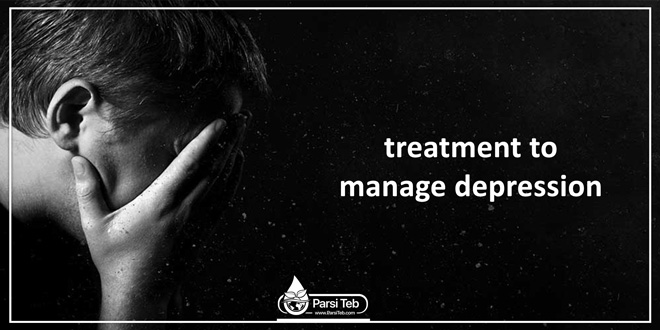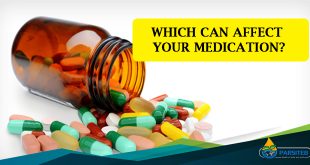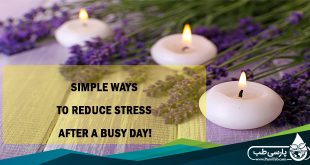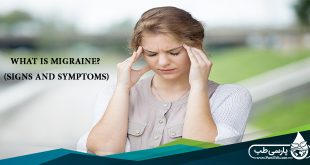Managing depression
There are many different management and treatment options for depression. Try to remember overcoming depression will take time and you will need to stay strong through some of the tougher days. Still, overcoming it is achievable!
Check out the Depression – types, causes and symptoms fact sheet for more information about the different types, causes, and symptoms of depression.
Treatment options for depression
Types of depression that are caused by biological factors (melancholic depression and psychotic melancholia) are more likely to need physical treatments, (eg antidepressants) and less likely to be resolved with psychological treatments alone (eg counselling, psychotherapy).
Non-melancholic depression may be treated equally effectively with physical treatments or with psychological treatments.
Psychological treatments for depression
The psychological treatment provides either an alternative to medication or works alongside medication and is usually provided by a mental health professional, such as a counsellor, psychiatrist or psychologist.
Psychiatrists are health workers who have special training in mental illnesses, including depression, schizophrenia and suicidal behaviour.
Clinical psychologists have similar training but do not prescribe medication. You may be able to find them through your GP, your local community health centre, or through colleges of psychiatry and psychology. Some GPs and other allied health staff also do counselling.
There are a number of psychological treatments or therapies used for depression, including cognitive therapy, interpersonal therapy, psychotherapy and counselling. Check out the Who can help you section and Different counselling techniques fact sheet for more info on getting the best help. As always, talk to your GP or therapist about the best set of approaches for you.
Clinical psychologists and psychiatrists are specialists trained in assisting people with mental illness and could also help. You can find these people in your local area through the beyondblue Directory of Medical and Allied Health Practitioners.
You might have a headspace centre nearby where your friend can get help in an environment designed specifically for young people – check out the link for more info.
Physical treatment for depression
Medication – Medication may be helpful in managing depression. There are several different types of antidepressant medication, which are prescribed by doctors or psychiatrists. Selective Serotonin Reuptake Inhibitors (SSRIs), Tricyclics (TCAs) and Irreversible Monoamine Oxidase Inhibitors (MAOIs) are three common classes of antidepressants. They each work in different ways and have different applications.
Like most medications, there can be side-effects and some medications are better suited to adults than young people. It is best to ask about what options you have, how the medication will affect you, and how to take the medication safely.
Hospital – Hospitalisation may be necessary if your depression is particularly severe or if you are suicidal. You might also spend a short amount of time in hospital if you begin taking medication to make sure that it is working effectively or to gauge side effects. Check out the Psychiatric hospitals or wards fact sheet for more info.
ECT – ECT is short for Electro Convulsive Therapy, sometimes called ‘shock therapy’. While under anaesthetic, you receive a brief, mild electric shock (lasting only a fraction of a second) that is delivered to the brain via electrodes placed on the head.
ECT has been shown to be most effective in treating psychotic depression. Like any treatment, it’s important to discuss the benefits, side-effects, and other options for ECT treatment.
Self-help + alternative therapies for depression
Along with seeking treatment to manage depression, there are a number of things you can do that may help when you are feeling depressed. Some of these include:
Eating well and being active – Even though you might not feel like it, exercising and eating well can help when you are feeling down. Biological factors, as well as social factors, influence how you will feel, react and think about things and yourself. Exercise helps stimulate hormones, such as endorphins, which help you feel better about yourself and your life.
If you haven’t done a lot of exercises before, it might be a good idea to start doing something small a couple of times each week. For example, a 15-minute walk or 2 or 3 laps of a pool.
Get out into nature – Evidence shows that when you have some sort of contact with nature (such as pets, plants, gardens or parks) your mood improves and you feel less stressed. Even just going for a walk in the park or at the beach may help.
Write down your feelings – Writing down your feelings, or keeping a journal, can be a great way of understanding your emotions and a specific situation. It can also help you think about alternative solutions to problems.
Taking time out to relax – It is a good idea to try and take a bit of each day to do something you enjoy. When you are feeling down it may be hard to be social or motivate yourself to do things. It may help to make a list of all the things you enjoy doing and then plan to do something from this list each day.
Talking to someone – Although it may seem hard, sharing how you feel and hanging out with someone you trust can help you get through the hard times, see alternative ways of solving or thinking about a problem, and help to make you a happier person in general.
If you are having difficulty speaking about what you’re going through, you might start with sentences such as ‘Right now, I’m feeling…’, ‘I think it started when…’, ‘I’ve been feeling this for…’, ‘My sleep has been…’, ‘Lately school/work/uni has been…’.
Support groups – As well as family and friends, support groups can be a place to share experiences and inspiration with others going through similar times. Contact your local community health centre for details of support groups in your area.
Alternatively, there are many different support groups online, such as depression.
Ring a crisis line – If you feel are having difficulty talking to people you know, phone a crisis line. Kids Helpline (1800 55 1800 free call from a landline) or Lifeline (13 11 14 – the cost of a local call from a landline) are both anonymous, 24hr helplines and the number won’t show up on your phone bill.
Set small goals – Sometimes people set goals which are almost unachievable and then feel even worse when they cannot reach them. Try to set goals that are achievable for you, even if it’s on a day by day, or hour by hour, basis. And remember to reward yourself too.
Reducing stress – It may be a good idea to try and reduce the level of stress you are feeling. You may like to check out the fact sheet on stress for some ideas on how to manage stress.
Go easy on drugs and alcohol – Try not to use drugs or alcohol in the hope of feeling better. The feeling is usually temporary and the after-effects often make the problem worse.
St. John’s Wort – St John’s Wort is a popular herbal remedy for depression. It is a flower with many chemical compounds, some of which are believed to help depression by preventing nerve cells in the brain from reabsorbing the chemical messenger serotonin.
Studies have shown that St. John’s Wort is an effective antidepressant in cases of people with mild, non-melancholic depression, but not effective for people with melancholic (biological) depression. However, it does have side-effects, including a possibility of affecting reproductive functioning and interacting with certain medications.
Interested in participating in an international study with Swinburne’s Brain Sciences Institute + Monash Alfred Psychiatry Research Centre?
If you’re experiencing depression, sometimes it can take a while to find the right medication for you.
iSPOT-D is a large international study to find out who will respond to which antidepressant. The principal aim is to get the prescription right the first time.
You may be eligible if you are aged 18–65 and have already been diagnosed or suspect you have depression.
The study involves two testing sessions (4–6 hours each) and seven telephone check-ins within 12 months. You will also provide a blood sample to the researchers and receive treatment from your own doctor.
 Parsi Teb Physical and Mental Health Journal
Parsi Teb Physical and Mental Health Journal 



